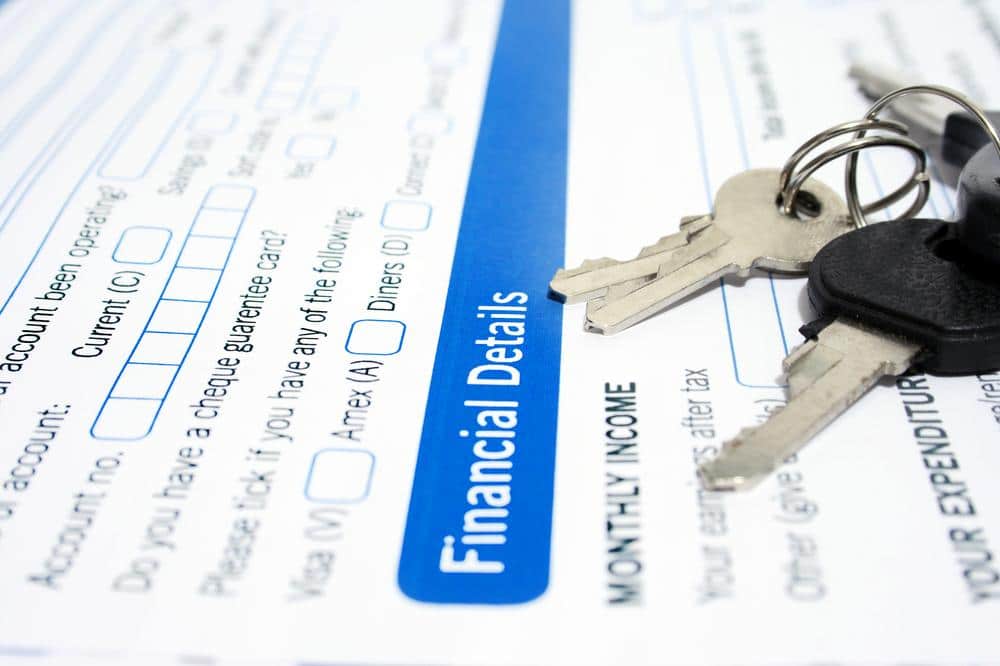The quickest way to finance rehab projects for property is generally a hard money loan. These loans are typically accepted based on property value versus the buyer’s credentials. On the other hand, they are frequently more expensive compared to a traditional loan. In this article, we will discuss the cost of a loan and calculating that cost with a hard money loan calculator.
Loan Terminology to Understand
First, let’s start with some terminology that is important to understand. The loan-to-value ratio is a measure that compares the mortgage amount with the property appraised value that private lenders will loan (LTV). Some lenders may base the loan amount on the after-repair value (ARV). Loan-to-value (LTV) is the percentage of a property’s appraised worth that a lender is willing to lend to a borrower.
Lenders analyze the loan amount in three ways:
- After-repair-value (ARV): The property’s future worth after repairs.
- Loan-to-value (LTV): Percentage of the property appraised value.
- Loan-to-cost (LTC): The loan amount divided by the total project cost. This includes the purchase price of the property, the cost of renovations, and other costs to acquire and renovate the property.

Hard Money and Private Money Loan Applications
When applying for private financing or using hard money lending, whether you are renovating a house to flip or upgrading a rental that you will refinance with a long-term mortgage in the future, you’ll generally need to provide specific details to the lender.
The lender will want the following information:
- Include location, building type, square footage, the lot’s size, and the property’s condition.
- A signed purchase and sale agreement is preferable; however, in the early stages, you may provide an offer price.
- If you require a loan for rehab, lenders will want to see your budget and bids from contractors. In addition, the lender may want details on previous jobs to show your competence if you intend to do your own repairs.
- Most lenders will require a timeline of your project from start to completion.
- Obtain a comparative market analysis of the property’s estimated after-repair value.
While hard money and private loans are primarily based on the actual or projected value of a property, borrowers must be prepared to provide personal financial information and be willing to sign personal guarantees.
The lender may request the following personal information:
- Each lender will have its own requirement for minimum credit scores. They may obtain a credit report. For example, borrowers with a credit score of 550 may be eligible, but the lender may charge a higher rate and fees.
- Income verification is usually done with the past two W-2 forms or the most current tax filings.
- Personal financial data includes bank balances, investment accounts, and other financial information.
- If the property is being purchased through an entity such as an LLC, be prepared to provide financial and corporate information.

How to Use a Loan Calculator for a Hard Money Loan
Hard money and Private money lenders provide short-term funds that are great for rehab and house flipping projects but might be costly. As a result, it is crucial to review all expenses. A hard money loan calculator will provide you with information on the prospective loan amount, potential upfront fees, monthly interest rates, and the costs of obtaining the loan for the duration of your need.
A hard money loan calculator will calculate a number based on whether your loan is based on the purchase price or the value of the property after repair (ARV). Depending on those factors, a loan calculator will assist you in determining whether or not you require a down payment and, if so, the approximate amount. If you have the option of receiving cash at closing, will offer that sum instead.
Furthermore, the percentages and other vital statistics you submit are used to convert points and interest into a dollar amount.
There is specific information you should gather for entry into a hard money loan calculator. First, you should look into private money lenders to learn about their interest rates, lending periods, and costs.
Additional data to collect includes:
- Loan amounts, both maximum and minimum
- Percentage the lender will loan to borrowers.
- Rates of interest
- Fees for loan origination
- Loan duration
- Expenses for renovations
Inputs for a Hard Money Calculator
You must enter multiple values into a hard money calculator. For example, the purchase price, after repair value (ARV), repair expenses, the lender’s estimated loan-to-value ratio, interest rate, loan duration, and upfront points and fees are all included.
Purchase Cost
In this section, enter the exact purchase price of the property. In addition, you can enter an estimated, projected, or expected purchase price if you don’t have a purchase price.
Costs of Repair
Enter your repair budget estimate. Repair expenses include the supplies required for the repairs and paid labor.
After-Repair Value Estimate (ARV)
If you are undertaking a fix-and-flip, enter the projected resale value of the property after rehabbing it in this section. ARV is the property’s estimated market value once repairs and upgrades are complete.
Funding Percentage
When entering information in the loan calculator, you will need to enter the percentage of the loan amount anticipated that the lender will finance. Most hard money loan calculators allow you to vary the percentage from 50 to 100%.
Funding Type
Select whether your lender will base the amount of the loan on the purchase price (LTV), the purchase price plus any repair costs (LTC), or the after-repair value (ARV).
Loan Period
Hard money and private money loans are generally for a short period of up to two years. You will enter the loan length from one year up to 24 months. This information calculates the interest costs over the loan’s term.
Rate of Interest
You will enter the expected interest rate to be paid for the loan. Private money and hard money lenders do not charge the same interest rates as long-term financial institutions. Compared to current mortgage rates, now at around 6%, hard money rates can range from as low as 6.375 percent to 18 percent.
Loan Origination Fees and Points
Private lenders may demand a higher upfront fee than standard mortgage lenders, ranging from one point to seven points. Points are prepaid interest; one point equals one percent of the loan amount. This information should be entered into the loan calculator.
If you know your lender may charge additional expenses (loan origination or appraisal fees), enter an estimate for these costs.

Outputs of a Hard Money Loan Calculator
Several values are computed using a hard money calculator. These comprise the total amount borrowed, the required down payment, cash returned at closing (if applicable), money for upfront charges, recurring costs, and the overall cost of a loan.
Amount of the Loan
This value shows the maximum loan amount available for you to borrow. It is based on the information you provide regarding the purchase price, cost of repairs, and after-repair value, as well as whether the lender bases funding on the purchase expenses, the purchase price plus the repair cost, or the after-repair value.
Down Payment
If you enter that the funding is dependent on the purchase price, the hard money loan calculator will estimate the potential down payment, depending on the funding ratio entered. For example, if the loan is based on the purchase price plus the cost of repairs or the ARV, the down payment may be zero because the loan amount may equal or exceed the property’s purchase price.
Cash At Closing
Sometimes, the amount allowed surpasses the property’s purchase price, especially if the loan funding is based on ARV. When this occurs, the amount of potential cash back is returned at closing.
Points and loan costs are not included in the cash at closing. Generally, they are deducted from any surplus cash. The remaining amount is presented to the borrower. If the loan is based on ARV and the amount exceeds what’s required to buy the home, the lender might still require a down payment.
For example, if a lender authorizes a loan based on 90% of the LTC plus 100% of the repairs, even if the loan amount may be greater than the property’s purchase price, the lender will still want a 10% down payment from the borrower.
Upfront Costs
A hard money loan calculator provides a total dollar value based on the points and other costs you choose.
Ongoing Interest Charges
The calculator will calculate the total interest you will pay based on the interest rate and holding time you specify.
The Hard Money Loan’s Total Costs
This amount represents the expected sum of the initial and continuing expenditures. It indicates the whole cost of the funding. Remember to deduct hard money costs and other charges from your estimated selling price when calculating possible earnings.

In conclusion
Hard money and Private lenders are one of the quickest ways to fund projects. These loans are generally approved depending on the value of the property. Because it is a short-term loan, hard and private money might have high upfront fees, interest, and points. These costs will be evaluated based on the project’s profitability. Using a hard money loan calculator, you can estimate these fees to include them in the agreement. For more information on hard and private money, and loan software, contact Liquid Logics. Our Cloud-based software is easy to use, secure, customizable, and built with the lender and borrower in mind.

